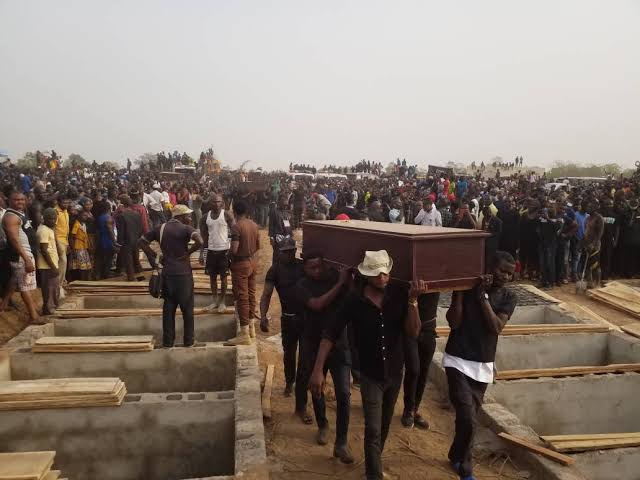In the aftermath of a brutal attack in north-central Nigeria, villagers in Benue state are still reeling. Survivors say the death toll has now climbed to 150, as families continue the grim search through the ashes of their homes for loved ones still missing.
Late Friday night, gunmen stormed the Yelewata community, opening fire while residents slept and setting buildings ablaze. Many victims had already been displaced by violence elsewhere and were seeking shelter in the village’s local market — a place that offered hope but became a trap.
“It happened so fast — the gunshots, the fire… people running in every direction,” said Jacob Psokaa, whose 55-year-old father was killed. “They came from all sides. There was no escape.”
No group has claimed responsibility, but the attack fits a deadly pattern in Nigeria’s north, where long-standing conflicts between herders and farmers over land and water rights have become more frequent and violent. Survivors and local officials suspect the assailants were herdsmen — a group increasingly armed in the face of growing resource scarcity and historical disputes.
Titus Tsegba lost his wife and four children — the youngest just 8 years old. “They were burned into ashes… I couldn’t even recognize their remains,” he said through tears. Tsegba, who happened to be sleeping elsewhere that night, is now left with only memories. “Everything is gone.”
Local authorities say the attackers also targeted food supplies, torching rice and yam stores in the village market — crops that would have helped feed not only Benue, but many other parts of Nigeria.
Nigeria’s President Bola Tinubu called the assault “senseless bloodletting,” promising to visit Yelewata on Wednesday. “Enough is enough,” he declared. “I have ordered security agencies to act decisively — find those responsible and bring them to justice.”
The tragedy underscores the ongoing crisis of safety and survival for many in Nigeria’s rural communities. With government efforts falling short, residents say they’re left to fend for themselves.
Benue’s Deputy Governor Sam Ode echoed the pain of the people. “What happened here is more than just an attack,” he said. “It is a wound on the conscience of this nation.”
As the smoke clears and families begin to bury their dead, grief hangs heavy in the air. For survivors, the road ahead is uncertain — but their calls for justice grow louder with each passing day.

